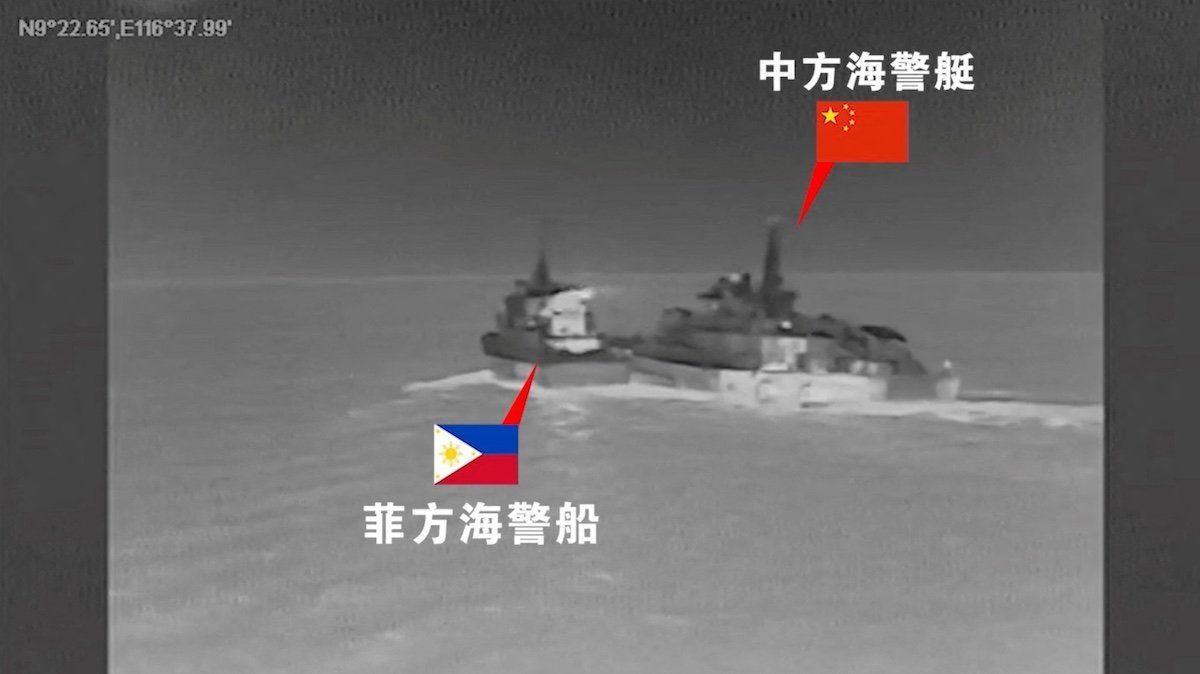On Sunday, Filipino and Chinese vessels collided for the second time in a week at the Sabina Shoal, a disputed area of the South China Sea. This latest clash occurred less than a month after Manila and Beijing signed a deal meant to avoid confrontation and escalation risk around the South Thomas Shoal. Chinese forces also fired flares at an airplane from Manila’s fisheries regulation agency on Saturday, and a Chinese fighter jet buzzed the same plane on Aug. 19.
Why the flare-up? The proximate cause seems to be Manila’s deployment of a coast guard ship to the waters around Sabina Shoal, an uninhabitable reef well within the Philippines’ exclusive economic zone. But Beijing still claims “indisputable” sovereignty there and may be worried about Manila attempting to set up some sort of semi-permanent base, as it did on the South Thomas Shoal by beaching an old ship on the rocks in 1999.
Beijing and Manila both recognize the risks of testing each other’s boundaries — and Washington has been clear it will back its longstanding ally if called upon to protect it from China. Even so, Eurasia Group’s
Jeremy Chan says the likelihood of the invocation of the US-Philippines Mutual Defense Treaty “is quite low, as the actions by the China coast guard vessels do not rise to the level of a ‘direct attack’ on a Philippine vessel and no injuries have been reported by either side.” It also means Beijing is “steering clear of the red lines established by Philippine President Marcos, and Manila has little interest in escalating tensions in the near term,” Chan adds.
